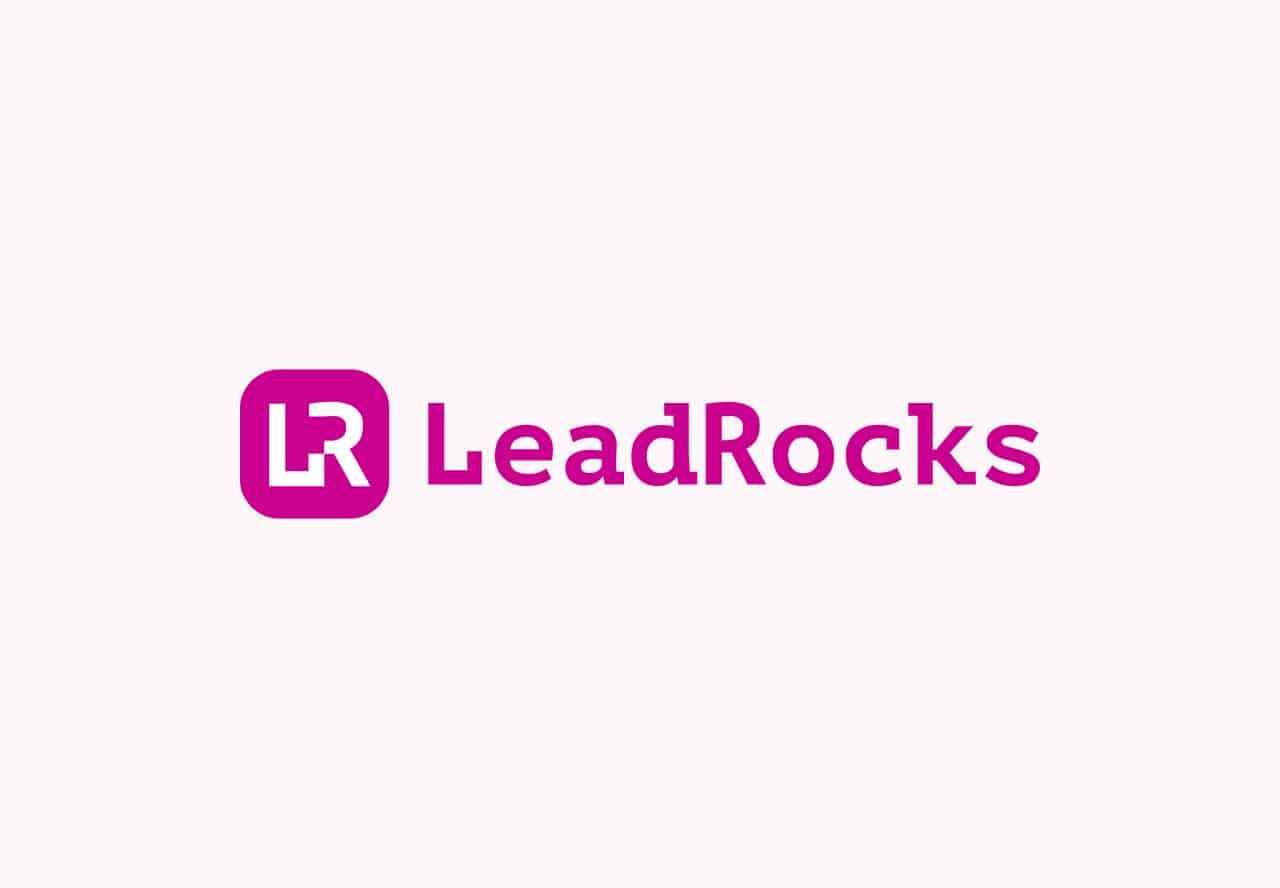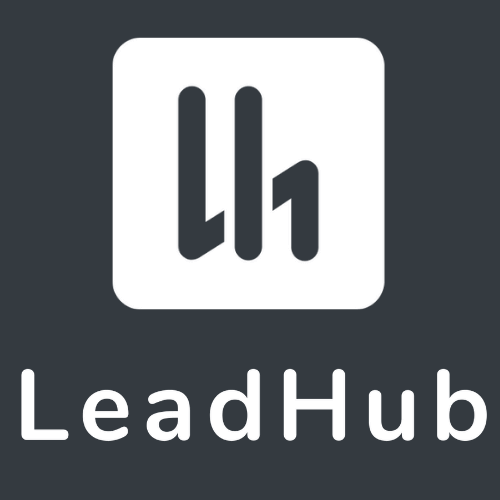Description

Leadforce CRM

LeadRocks
Comprehensive Overview: Leadforce CRM vs LeadRocks
As of my last update, Leadforce CRM and LeadRocks might refer to different types of software tools aimed at customer relationship management (CRM) and lead generation. To provide a comprehensive overview, I'll address these products generally, though note that there can be variations based on specific offerings and updates beyond my knowledge cut-off.
Leadforce CRM
a) Primary Functions and Target Markets
Primary Functions:
- Customer Management: Centralized storage of customer information for easy tracking and management of interactions.
- Sales Pipeline Management: Tools to visualize and track sales process stages, manage opportunities, and forecast likely sales outcomes.
- Contact and Lead Tracking: Ability to capture and manage leads, automate follow-ups, and prioritize opportunities.
- Email Marketing: Integration with email for campaigns, newsletters, and targeted communication.
- Reporting and Analytics: Options for generating reports to analyze sales data and performance metrics.
Target Markets:
- Small to medium-sized businesses (SMBs) needing robust CRM functionalities.
- Industries that heavily rely on customer interactions, such as retail, real estate, and service-based businesses.
b) Market Share and User Base
Leadforce CRM may cater primarily to small and medium enterprises, and its market share is typically overshadowed by larger players like Salesforce, HubSpot, or Zoho CRM. However, it may have a dedicated user base looking for cost-effective solutions without excessive functionality, focusing more on direct relationship management and lead conversion.
c) Key Differentiating Factors
- Customizability: Often touted for flexible workflows and processes tailored to specific business needs.
- Ease of Use: Emphasis on a user-friendly interface that doesn't require extensive training.
- Cost-Effectiveness: Competitive pricing options aimed at smaller businesses.
LeadRocks
a) Primary Functions and Target Markets
Primary Functions:
- Lead Generation: Access to a database of verified business leads, including contact information and company data.
- Data Enrichment: Tools to enhance existing contact lists with up-to-date information to improve outreach accuracy.
- Integration Capabilities: Ability to sync data with other marketing and sales platforms for seamless operations.
Target Markets:
- Sales and marketing teams across various industries seeking efficient methods to increase lead acquisition and conversion.
- Startups and SMBs aiming to expand their prospect database quickly.
b) Market Share and User Base
LeadRocks focuses on providing rich lead data, which makes it competitive within the niche of lead generation services. While specifics about the market share might be less clear-cut compared to established CRM giants, LeadRocks primarily appeals to users who prioritize lead quality and accuracy over broader CRM functionalities.
c) Key Differentiating Factors
- Quality and Accuracy of Leads: Known for high-quality data verification processes to yield reliable lead information.
- Data Coverage: Broad database access that covers various industries, allowing for targeted prospecting.
- Simple Integration: Designed to easily integrate and complement existing CRM systems or outreach workflows.
Comparative Overview
- Leadforce CRM focuses more on the holistic management of customer relationships with in-depth features targeting SMBs.
- LeadRocks emphasizes data quality and lead generation, serving as a supplement to broader CRM systems for enhanced contact database development.
- In terms of market presence, LeadRocks might operate as a specialized service fitting within a larger sales and marketing tech stack, whereas Leadforce CRM strives to be an all-in-one CRM solution for smaller businesses.
- Differentiation typically lies in the prioritization of either comprehensive CRM management versus specialized lead generation capabilities.
Note: Due to the dynamic nature of software markets, ongoing developments and potential rebranding efforts make it crucial to refer to the latest available company and user feedback for up-to-date specifics.
Contact Info

Year founded :
2020
Not Available
Not Available
India
http://www.linkedin.com/company/leadforce-crm

Year founded :
Not Available
Not Available
Not Available
Not Available
Not Available
Feature Similarity Breakdown: Leadforce CRM, LeadRocks
When comparing Leadforce CRM and LeadRocks, it's essential to examine their core features, user interfaces, and unique offerings. Here's a breakdown based on the typical functionalities and market positioning of similar CRM and lead generation tools:
a) Core Features in Common
-
Lead Management:
- Both Leadforce CRM and LeadRocks provide tools for managing and tracking leads throughout the sales funnel. This includes capturing lead information, updating lead status, and organizing leads based on various criteria.
-
Contact Management:
- Both platforms offer robust contact management systems that allow users to store and manage detailed contact information, including communication history.
-
Integration Capabilities:
- They often integrate with popular third-party applications like email marketing tools (e.g., Mailchimp), productivity tools (e.g., Google Workspace), and other CRM solutions to streamline workflows and improve data synchronization.
-
Reporting and Analytics:
- Both tools typically include reporting and analytics features that enable users to track performance metrics, conversion rates, and other key indicators to improve decision-making.
-
Automation:
- Automation features are a common component, helping users to automate repetitive tasks such as email follow-ups, lead assignments, and reminders, thus improving efficiency.
b) User Interface Comparison
- Leadforce CRM:
- Typically, Leadforce CRM would focus on user-friendly navigation, allowing users to customize dashboards and view relevant data at a glance. The interface might be geared towards sales teams' daily operations with easy access to essential features.
- LeadRocks:
- LeadRocks might lean towards a more streamlined, lead-centric interface, with a simplified layout focusing on lead generation and enrichment processes. The design might prioritize ease of use for rapidly accessing leads and related insights.
In general, while both platforms strive for intuitive user interfaces, Leadforce CRM might provide a more comprehensive contact and sales pipeline view, whereas LeadRocks could lean towards a straightforward interface optimized for quick lead identification and engagement.
c) Unique Features
-
Leadforce CRM:
- Advanced CRM Functionalities: Leadforce CRM may offer more comprehensive CRM functionalities, such as customer segmentation, detailed pipeline management, and potentially more robust analytics for deeper sales insights, catering to a broader range of customer relationship management needs.
-
LeadRocks:
-
Lead Enrichment and Data Sourcing: LeadRocks might excel in lead enrichment, providing real-time data verification and sourcing additional contact information like emails and social media profiles, which can be particularly beneficial for businesses focused on aggressive outbound sales strategies.
-
Focus on Outreach Tools: It may also feature unique outreach capabilities like built-in email sequencing or integration with communication platforms designed to enhance lead engagement efforts directly from the platform.
-
In summary, while both Leadforce CRM and LeadRocks share fundamental CRM and lead management functionalities, they might diverge in terms of specific capabilities and focus areas, with Leadforce CRM offering broader CRM features and LeadRocks specializing in lead enrichment and outreach tools.
Features

Not Available

Not Available
Best Fit Use Cases: Leadforce CRM, LeadRocks
Leadforce CRM
a) Best Fit for Businesses or Projects:
- Small to Medium-Sized Enterprises (SMEs): Leadforce CRM is ideal for SMEs looking for an affordable yet comprehensive CRM solution. It offers features that are scalable as the business grows, making it suitable for companies in this size range.
- Startups: Startups that need to streamline customer interactions and sales processes can benefit from Leadforce CRM's user-friendly interface and cost-effective price structure, allowing them to focus on growth without being burdened by complex systems.
- Sales-Driven Organizations: Companies with a strong focus on sales can leverage Leadforce's robust lead and opportunity management tools to enhance sales operations and maintain customer relationships.
- Service-Based Industries: Firms that require detailed service records and customer interaction histories, such as consulting firms or agencies, can utilize the depth of information Leadforce CRM provides to enhance service quality.
d) Catering to Industry Verticals and Company Sizes:
- Industry Verticals: Leadforce CRM supports industries like retail, real estate, education, and healthcare by providing industry-specific templates and features that streamline processes unique to these sectors.
- Company Sizes: Primarily aimed at small and medium-sized companies, but its scalability can also accommodate larger organizations that don’t have extremely complex CRM needs.
LeadRocks
b) Preferred Scenarios:
- Lead Generation Focused Projects: LeadRocks excels when the primary need is generating high-quality leads. It's particularly useful for marketing agencies and businesses in need of constant lead influx.
- Sales Development Representatives (SDRs): Teams of SDRs can utilize LeadRocks for efficient prospecting, leveraging its capabilities in generating leads directly from various social channels and databases.
- B2B Sales Teams: Businesses focused on B2B sales will find LeadRocks useful for its ability to provide direct contact details and company data for potential clients, aligning with strategic outreach efforts.
- Market Research Initiatives: Companies conducting market analysis can use LeadRocks to collect data on competitors and the industry landscape, supporting informed decision-making.
d) Catering to Industry Verticals and Company Sizes:
- Industry Verticals: LeadRocks can be beneficial for industries such as SaaS, fintech, and manufacturing by focusing on lead acquisition and contact management specific to industry needs.
- Company Sizes: While LeadRocks is flexible enough for various company sizes, it’s particularly catered towards small to medium businesses and startups that prioritize growth through proactive lead generation.
In summary, Leadforce CRM is optimal for businesses focused on managing existing customer relationships and sales processes, while LeadRocks is better suited for companies looking to expand their customer base through proactive lead generation. Each tool caters effectively to its target audience by addressing specific operational needs and industry requirements.
Pricing

Pricing Not Available

Pricing Not Available
Metrics History
Metrics History
Comparing undefined across companies
Conclusion & Final Verdict: Leadforce CRM vs LeadRocks
Conclusion and Final Verdict: Leadforce CRM vs LeadRocks
When evaluating Leadforce CRM and LeadRocks, it's essential to consider the specific needs of your business, the scope of your operations, and your budget. Both products cater to different aspects of lead management and CRM functionalities, which can significantly impact the efficiency of your sales processes and customer relationship management.
a) Best Overall Value:
Leadforce CRM generally offers the best overall value for businesses seeking a comprehensive CRM solution with integrated lead management capabilities. It provides a wide range of features that support the entire customer lifecycle, from lead generation to conversion and beyond. Its comprehensive suite of tools makes it suitable for businesses looking for an all-in-one platform to manage customer relationships and streamline sales processes.
b) Pros and Cons:
Leadforce CRM:
-
Pros:
- Comprehensive CRM features: Offers extensive tools for managing customer relationships and sales processes.
- Scalability: Suitable for businesses of various sizes, with features that can grow alongside the business.
- Integration: Often integrates well with other business tools and services, providing a seamless user experience.
- Analytics and reporting: Provides robust analytical tools that help in measuring performance and making data-driven decisions.
-
Cons:
- Price: May carry a higher price point than single-function solutions, especially for smaller businesses.
- Complexity: The comprehensive nature can make it complex for smaller teams who might need only specific functionalities.
LeadRocks:
-
Pros:
- Ease of use: Often easier for teams primarily focused on lead generation and doesn’t require extensive training.
- Cost-effective: Generally offers competitive pricing, making it accessible for startups or businesses with a tight budget.
- Specialized focus: Provides targeted tools particularly for lead generation and management, which may be precisely what some businesses need.
-
Cons:
- Limited functionality: May lack the broader CRM features needed for full customer relationship management.
- Integration: Might not integrate as seamlessly with broader business systems compared to more comprehensive CRMs.
c) Recommendations for Users:
-
For businesses prioritizing a comprehensive CRM system: Leadforce CRM is the ideal choice, as it covers a broader spectrum of CRM and lead management needs. It's particularly well-suited for mid-to-large enterprises that require robust analytics, reporting, and integration with other business tools.
-
For businesses focused on lead generation with budget constraints: LeadRocks may be more appropriate, offering specialized tools at a lower cost with simplicity in functionality and use. It's a strong option for startups or small businesses that need an efficient way to handle leads without the added complexity of a full CRM suite.
-
Consider your business growth plans: If you anticipate expanding your requirements as your business grows, investing in Leadforce CRM might be worthwhile from the beginning to avoid transitioning costs and data migration later.
Ultimately, the decision should be based on an evaluation of both current operational needs and future growth projections to ensure you select the tool that provides the most strategic value to your organization.
Add to compare
Add similar companies



